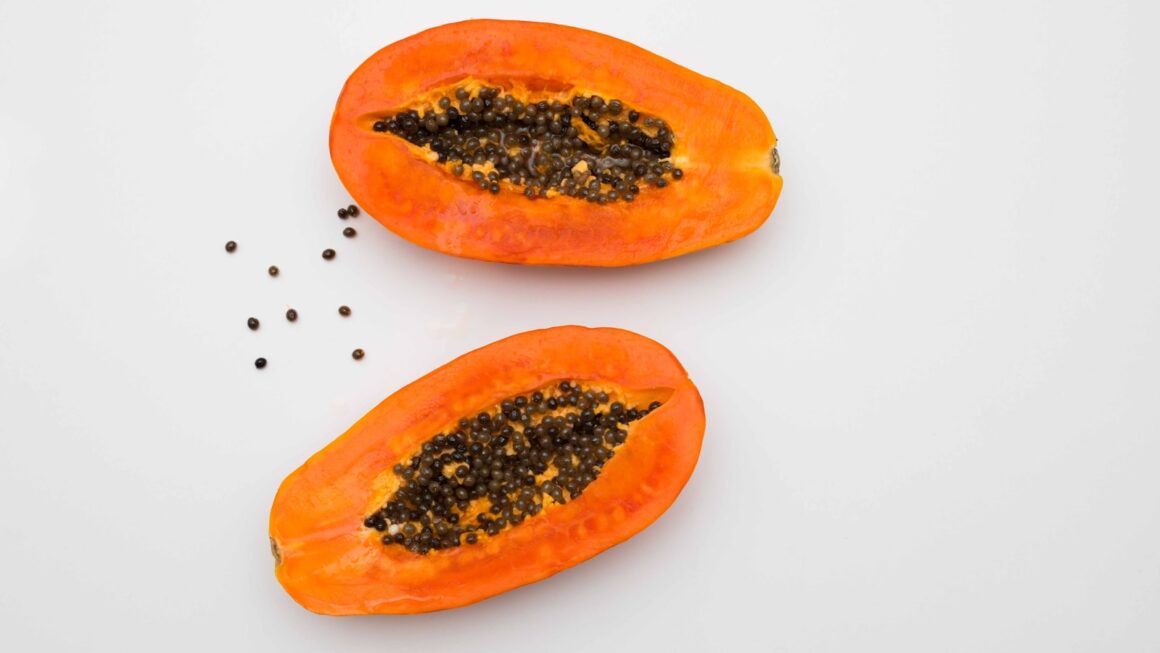Carotenoids play a crucial role in promoting overall health due to their potent antioxidant properties.
These natural pigments, found in fruits and vegetables, help protect the body’s cells from damage caused by harmful free radicals. By scavenging these free radicals, carotenoids contribute to reducing oxidative stress and inflammation, which are known factors in the development of chronic diseases such as cancer, cardiovascular ailments, and neurodegenerative disorders.
Moreover, carotenoids have been linked to supporting a robust immune system, which is essential for warding off infections and maintaining optimal health. Some carotenoids, like beta-carotene, can be converted into vitamin A in the body, playing a key role in maintaining healthy vision, skin, and mucous membranes. Including a variety of carotenoid-rich foods in your diet can offer a spectrum of health benefits, making these natural compounds vital for overall well-being.
Understanding the Various Types of Carotenoids and Their Sources
Carotenoids are a diverse group of plant pigments that play a crucial role in promoting health and well-being. With over 600 different types identified in nature, carotenoids showcase a wide array of vibrant colors, ranging from red to yellow to orange. The most common types of carotenoids include beta-carotene, lutein, zeaxanthin, and lycopene, each with its distinct properties and benefits for the body.
Beta-carotene, found in fruits and vegetables like carrots, sweet potatoes, and cantaloupe, is known for its conversion into vitamin A, essential for vision health and immune function. Lutein and zeaxanthin, predominant in leafy greens such as spinach and kale, are critical for maintaining healthy eyes and preventing age-related macular degeneration. Lycopene, abundant in tomatoes and watermelon, is a potent antioxidant that may help reduce the risk of chronic diseases like cancer and heart disease. By incorporating a diverse range of carotenoid-rich foods into your diet, you can harness the collective power of these compounds to support your overall health and vitality.
Exploring the Antioxidant Properties of Carotenoids
Carotenoids are known for their potent antioxidant properties, which play a crucial role in combating oxidative stress in the body. These compounds help neutralize harmful free radicals that can damage cells and contribute to various chronic diseases. The antioxidant activity of carotenoids helps in protecting cells from oxidative damage, ultimately supporting overall health and well-being.
Research has shown that carotenoids like beta-carotene, lutein, and zeaxanthin possess strong antioxidant capabilities. By scavenging free radicals, these compounds help reduce inflammation, lower the risk of developing age-related diseases, and support healthy aging. Incorporating carotenoid-rich foods into your diet can be an effective way to boost your antioxidant intake and enhance your body’s defense mechanisms against oxidative stress.
The Impact of Carotenoids on Eye Health and Vision
Carotenoids play a crucial role in maintaining optimal eye health and supporting clear vision. Specifically, lutein and zeaxanthin, two types of carotenoids found in high concentrations in the retina, help to filter harmful blue light and protect against oxidative damage. By acting as powerful antioxidants, these carotenoids contribute to reducing the risk of age-related macular degeneration and cataracts, two common eye conditions that can lead to vision impairment. Including carotenoid-rich foods in your diet can therefore aid in preserving your eye health and promoting long-lasting visual acuity.
Moreover, research suggests that carotenoids may enhance visual performance, particularly in low light conditions. By improving contrast sensitivity and reducing glare, carotenoids help to support overall visual function and adaptability. Consuming a variety of fruits and vegetables rich in carotenoids, such as spinach, broccoli, carrots, and oranges, can contribute to maintaining healthy eyes and sharp vision. Incorporating these nutrient-dense foods into your daily meals can serve as a proactive approach to safeguarding your eye health and preserving your ability to see clearly.
How Carotenoids Can Support Cardiovascular Health
Carotenoids play a significant role in supporting cardiovascular health due to their potent antioxidant properties. These compounds help combat oxidative stress and inflammation, which are key factors in the development of cardiovascular diseases. Carotenoids like beta-carotene, lutein, and zeaxanthin have been shown to reduce the risk of heart disease by protecting against the oxidation of LDL cholesterol and improving overall heart function.
Moreover, carotenoids have been linked to lower blood pressure levels and a reduced risk of developing atherosclerosis, a condition characterized by the buildup of plaque in the arteries. By incorporating carotenoid-rich foods such as carrots, sweet potatoes, and spinach into your diet, you can support your cardiovascular system and promote long-term heart health. Additionally, consulting with a healthcare professional can provide personalized advice on incorporating the right balance of carotenoids for optimal cardiovascular benefits.

The Relationship Between Carotenoids and Skin Health
Carotenoids play a crucial role in maintaining skin health due to their antioxidant properties. These compounds help protect the skin from oxidative stress caused by environmental factors such as UV radiation and pollution. By neutralizing free radicals, carotenoids help prevent premature skin aging and maintain a youthful complexion. Additionally, carotenoids have been shown to support skin elasticity and hydration, contributing to overall skin health.
Incorporating carotenoid-rich foods into your diet can have a positive impact on your skin. Consuming fruits and vegetables like carrots, sweet potatoes, tomatoes, and bell peppers can provide your body with a variety of carotenoids such as beta-carotene, lycopene, and lutein. These nutrients not only benefit skin health but also promote a radiant and glowing complexion. By including a colorful array of carotenoid-rich foods in your meals, you can support your skin’s natural defense mechanisms and enhance its overall appearance.
Carotenoids and Their Potential Anti-inflammatory Effects
Carotenoids have garnered attention for their potential anti-inflammatory effects within the body. Research suggests that carotenoids, such as beta-carotene and lutein, may play a role in reducing inflammation due to their antioxidant properties. Inflammation is a natural response by the immune system but when it becomes chronic, it can lead to various health issues. By incorporating carotenoid-rich foods into your diet, you may help combat inflammation and support overall well-being.
Moreover, carotenoids have been linked to decreasing the levels of certain inflammatory markers in the body. This anti-inflammatory potential may offer protection against chronic diseases associated with inflammation, such as heart disease, diabetes, and arthritis. By prioritizing a diet rich in carotenoid-containing foods like carrots, sweet potatoes, spinach, and tomatoes, individuals may be able to positively influence their inflammatory response and enhance their overall health.
The Importance of Carotenoids in Boosting Immune Function
Carotenoids play a crucial role in supporting the immune system by bolstering its defenses against potential threats. The vibrant hues of carotenoid-rich fruits and vegetables signal the presence of essential nutrients that aid in maintaining a robust immune response. These compounds function as powerful antioxidants, neutralizing harmful free radicals that can compromise the immune system’s effectiveness.
Incorporating a variety of carotenoid-rich foods into your diet can help strengthen your body’s immune defenses and promote overall well-being. By including sources such as carrots, sweet potatoes, kale, and bell peppers in your daily meals, you can provide your immune system with the necessary support to function optimally. Making conscious choices to prioritize carotenoid consumption can significantly contribute to enhancing your immune function and protecting against illnesses and infections.
Tips for Incorporating Carotenoid-rich Foods into Your Diet
When looking to enhance your diet with carotenoid-rich foods, consider incorporating vibrant fruits and vegetables such as carrots, sweet potatoes, spinach, kale, and bell peppers into your meals. These colorful options not only provide a visual feast but also pack a powerful punch of essential nutrients. You can easily add a variety of carotenoid sources into your daily menu by including them in salads, smoothies, stir-fries, and soups.
Furthermore, don’t underestimate the benefits of snacking on carotenoid-rich foods like cherry tomatoes, mangoes, and apricots between meals. These convenient options can help you increase your daily intake of carotenoids while satisfying hunger pangs. By intentionally including a spectrum of colorful produce in your diet, you can naturally boost your health and support your overall well-being.
Consulting with a Healthcare Professional for Personalized Advice on Carotenoid Consumption
Before making any significant changes to your diet or incorporating new supplements, it is crucial to consult with a healthcare professional for personalized advice on carotenoid consumption. A qualified healthcare provider can offer tailored recommendations based on your individual health needs, existing medical conditions, and dietary preferences. Seeking guidance from a professional will ensure that you are making informed decisions that align with your overall health goals and well-being.
Healthcare professionals, such as registered dietitians or nutritionists, have the expertise to assess your current diet, lifestyle, and nutritional requirements to determine the most suitable approach to incorporating carotenoid-rich foods into your daily meals. They can provide valuable insights into the types and amounts of carotenoids that would best benefit your health, as well as offer practical tips on meal planning and recipe ideas to help you achieve a balanced and nutritious diet. By consulting with a healthcare professional, you can optimize your carotenoid intake in a safe and effective manner, tailored to your specific needs.



